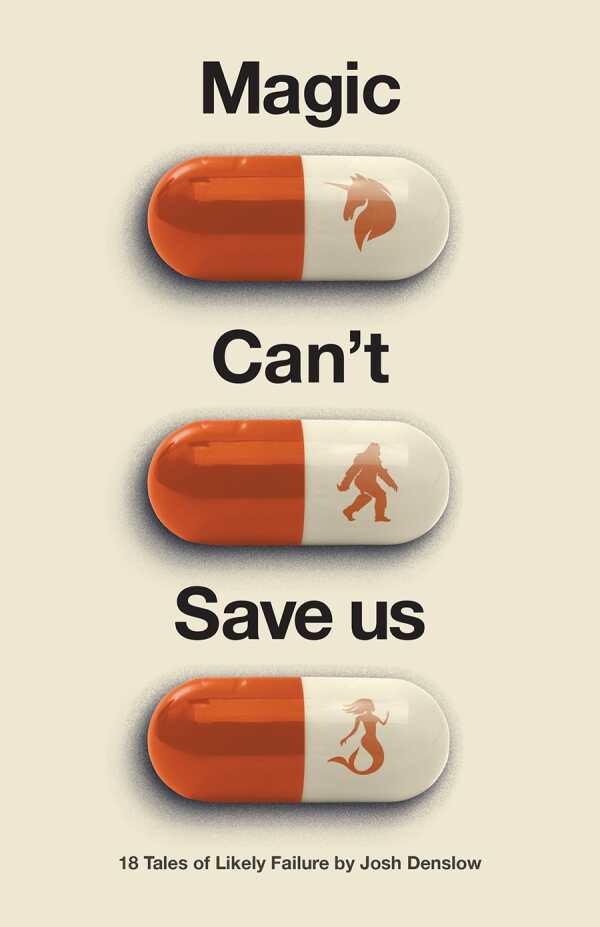Magic Can’t Save Us
Eighteen Tales of Likely Failure
In the eighteen tales comprising Josh Denslow’s enjoyable short story collection Magic Can’t Save Us, creatures including zombies, mermaids, and dragons make their presences felt by forcing the humans around them into difficult situations.
All of the collected stories have elements in common: intimate narrations, relationships with underlying problems, and cryptids and mythological creatures that pose extra challenges for those relationships, heightening perennial questions about interpersonal relations. In “Keening,” a man is followed, from childhood onward, by a banshee. Her wailing sometimes bodes ill for others in his life, and her presence increases the stakes when he meets a date for dinner. In the eerie story “Rescue Mission,” a couple lives in an apartment that’s near a harpy den. When the monsters fly off with the narrator’s girlfriend, he considers both the risk of a rescue mission and whether their already struggling relationship is worth the effort.
In “Court of Common Pleas,” a man confesses to an affair, and his wife kicks him out. Inspired by advertisements extolling the virtues of dragons, she gets one to stand between him and his son. In “Waves,” a man saves a mermaid that’s stuck among the rocks, but his kindness has unintended consequences. Elsewhere, people have to decide whether to eat unicorn meat or how to navigate a labyrinth while visiting their ex’s parents.
With varying conflicts and a mix of dark humor with real stakes, the short story collection Magic Can’t Save Us blends the bizarre with the personal in its tales about love, loyalty, and connections between human beings.
Reviewed by
Jeff Fleischer
Disclosure: This article is not an endorsement, but a review. The publisher of this book provided free copies of the book to have their book reviewed by a professional reviewer. No fee was paid by the publisher for this review. Foreword Reviews only recommends books that we love. Foreword Magazine, Inc. is disclosing this in accordance with the Federal Trade Commission’s 16 CFR, Part 255.

